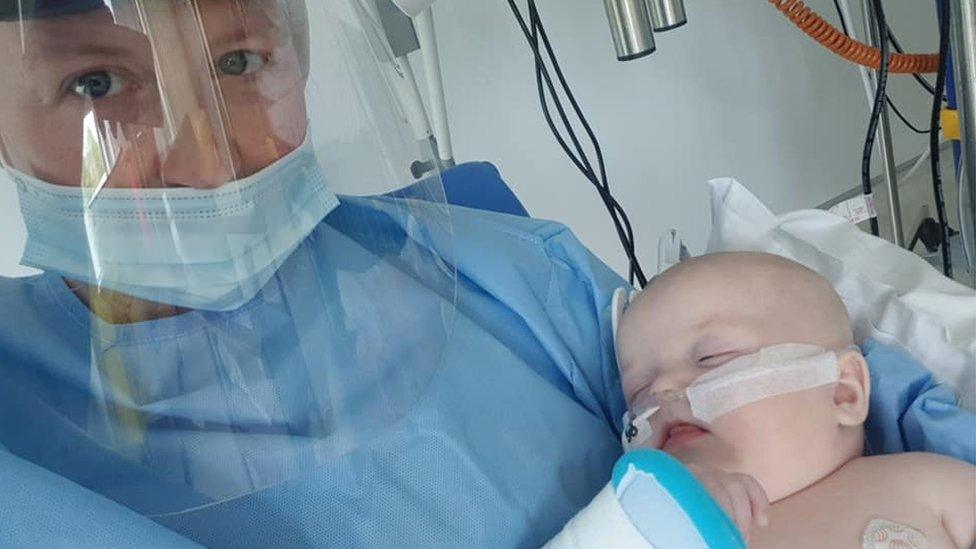Coronavirus: Inside Wales' largest hospital during pandemic
- Published
Patients recovering from being critically ill with Covid-19 'have a long road ahead'
The University Hospital of Wales in Cardiff was a very different place to the one I'm used to visiting.
Footsteps echo around the normally crowded corridors of Wales' largest hospital as I make my first stop, the rehabilitation ward - one of three on the same floor - all repurposed to help patients recover from the ravages of coronavirus.
Here, staff are tasked with gently easing them back to full strength.
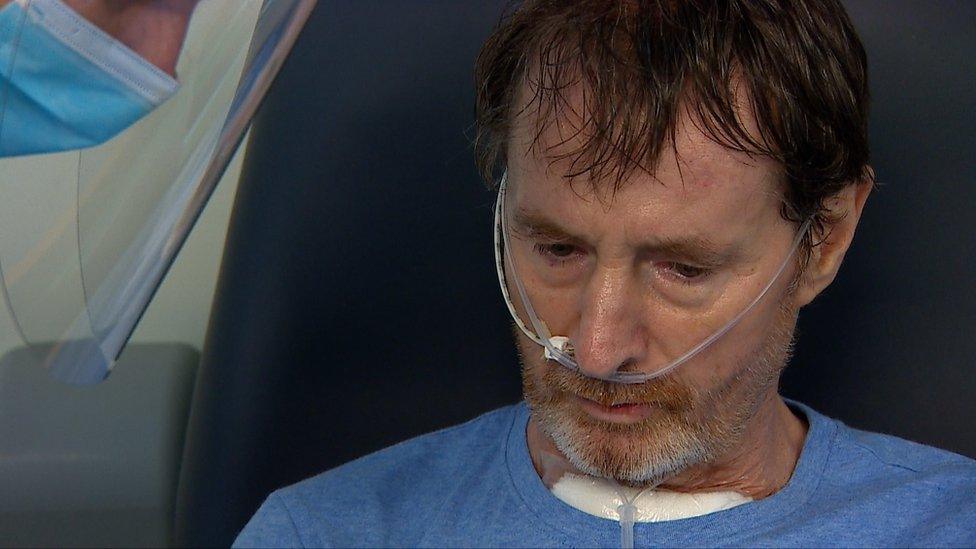
Geoff Bodman has spent more than two months in intensive care
It was sobering to watch previously healthy patients, such as 56-year-old Geoff Bodman, from Tremorfa in Cardiff, who spent two months in intensive care, struggle with basic tasks such as walking, talking or writing their own name.
The sheer level of rehabilitation support they need gives a hint of what to expect from the intensive care unit itself.
We joined hospital staff queuing outside its entrance, waiting to don the mandatory personal protective equipment (PPE).
It is here they cover up their hair and put on gowns, hospital-grade masks, visors or goggles and two pairs of gloves.
The wait offers a few moments to steel themselves for whatever lies ahead.
Having gone through the final meticulous checks, we followed them in.
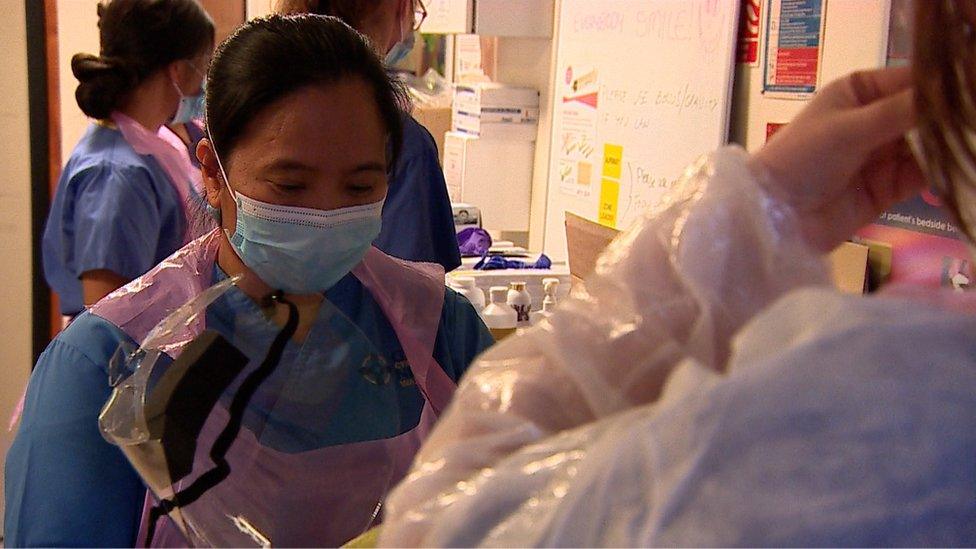
Protective personal equipment is double checked before anyone gets on the intensive care wards
The constant low hum and whir of the ventilators keeping patients alive was punctuated by the urgent beep of monitors.
Staff have to raise their voices to be heard here through the face masks and visors. They spend many long, hot hours in full PPE and leave with the marks of the shift on their faces.
Within minutes, I quickly realised why most staff here opted for visors rather than goggles.
My BBC-issued eyewear steamed up and I could hardly see a thing, viewing the room through a hazy fog.
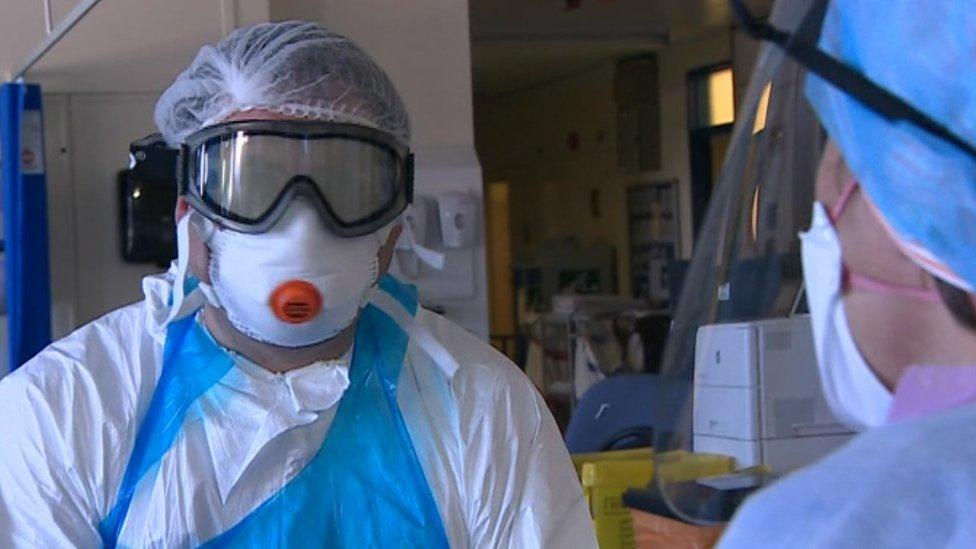
Health correspondent Owain Clarke wore PPE provided by the BBC during the filming
It was a constant battle to stop myself touching my face to adjust my eye protection, while acutely aware of the presence of the virus all around us.
The painful sensation of the mask digging into my nose at least reassured me it had formed the necessary seal.
It was both a profound and surreal experience.
After 10 minutes, I was left exhausted, uncomfortable and claustrophobic by the restrictions of the PPE.
It was obvious why staff who endure this intense environment for hours on end can leave dehydrated and suffering splitting headaches.
Helping some of the hospital's most gravely-ill patients has left most nurses in tears, Emma Thomas tells us. She's one of the unit's research nurses.
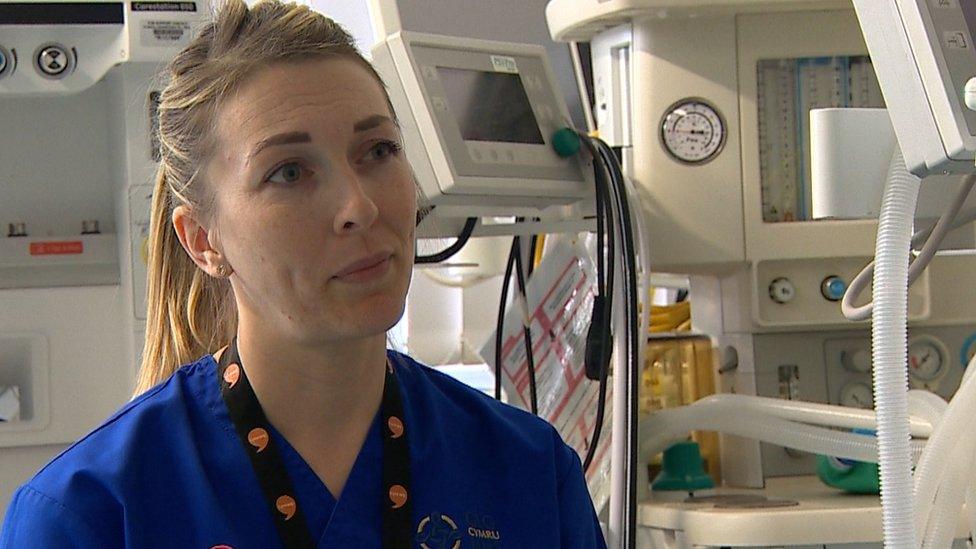
Working in critical care has been an emotional experience, says nurse Emma Thomas
It's hard, she says, replacing a family member at a patient's bedside as they take their last breath.
Coronavirus has claimed the lives of at least 228 people at this hospital alone.
There is also a determination to convey to families their loved-ones are well cared for in those moments.
The hospital has so far narrowly avoided exceeding its critical care capacity but there was frustration among staff that many people appear to be taking themselves out of lockdown.

A SIMPLE GUIDE: How do I protect myself?
IMPACT: What the virus does to the body
RECOVERY: How long does it take?

"We'll be seeing some of those who were out last weekend [for VE day] in about five days, I suspect," one member of staff told me.
They seemed almost resigned to a second peak of infection, but hoped the public would continue to listen to government advice, however tough and tiring they are finding the restrictions of protecting themselves at home.
Owain Clarke and cameraman Dyfed Davies were given unprecedented access to the University Hospital of Wales ITU department and Covid rehabilitation wards. They used PPE provided by the BBC to document the hospital's response to the coronavirus epidemic
- Published15 May 2020
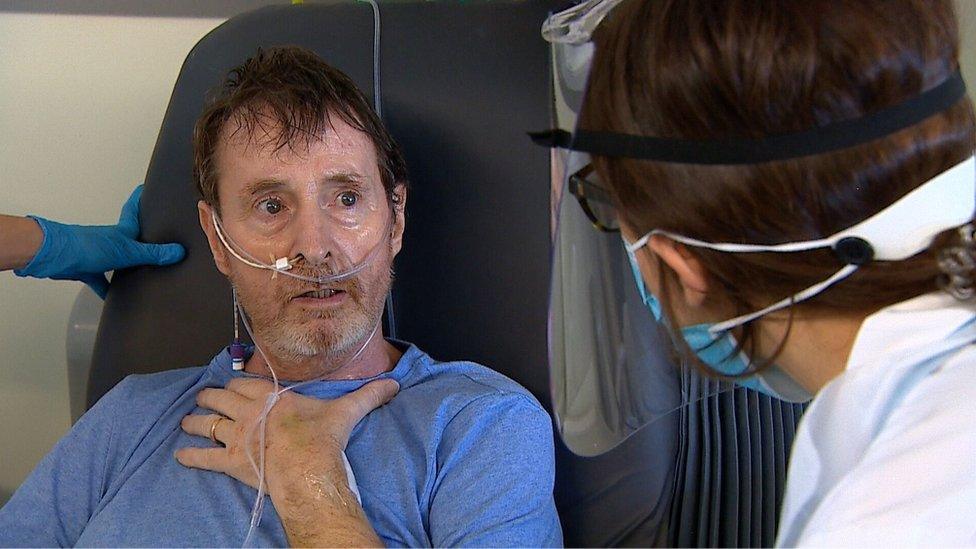
- Published15 May 2020
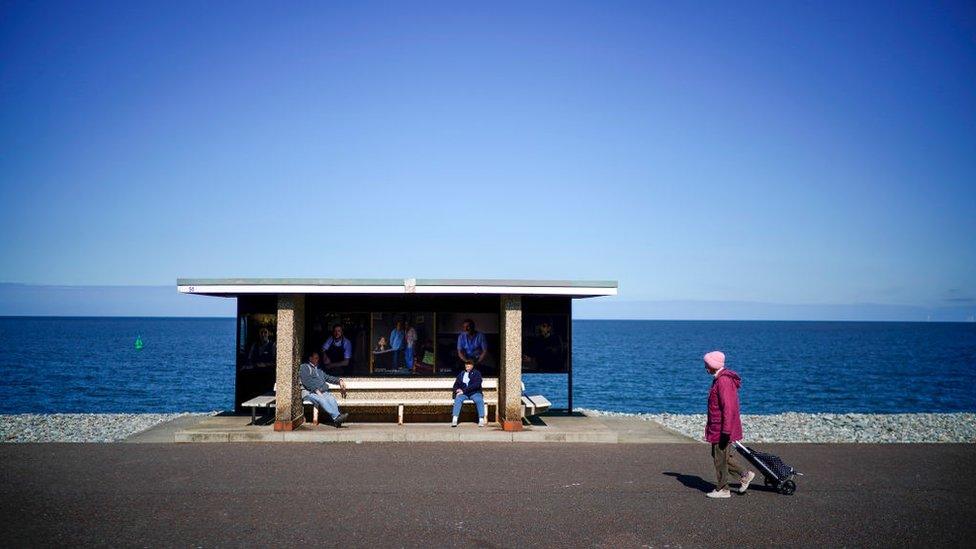
- Published15 May 2020
